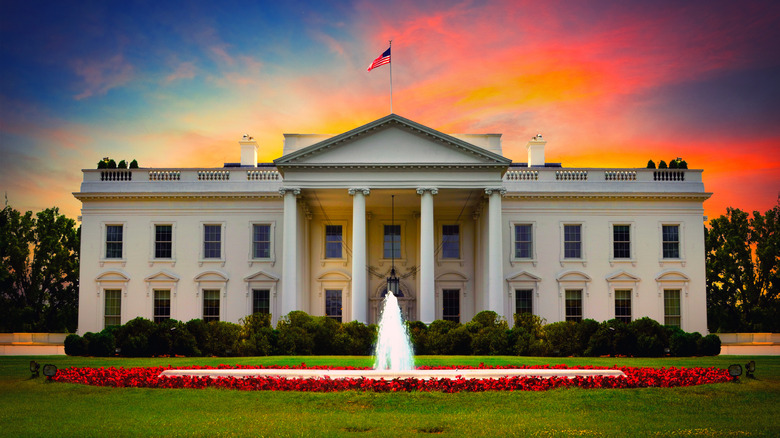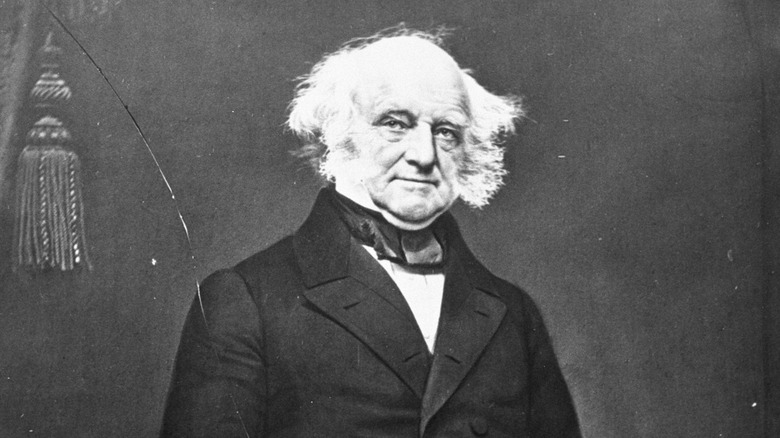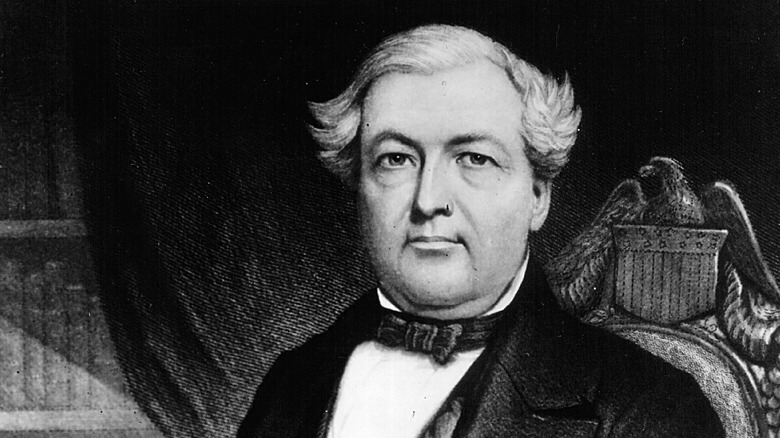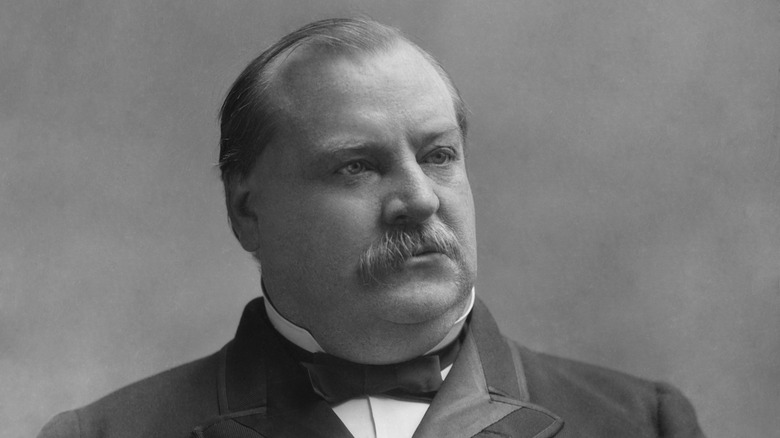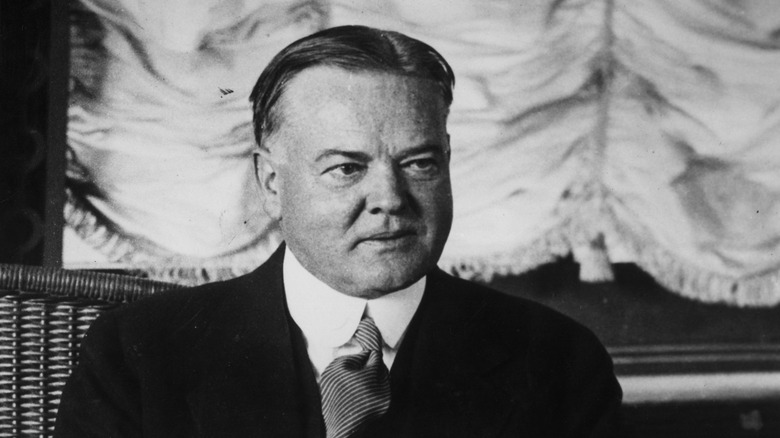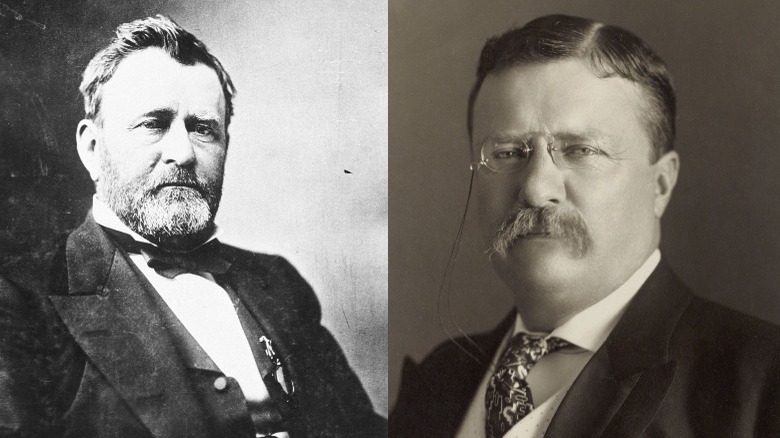Former Presidents Who Ran Again After Losing Reelection
There's something to be said about the "never quit" attitude that it takes to get back on the presidential campaign saddle, even after a large portion of the general public has made it abundantly clear that they don't want you to be the president anymore. Perhaps it's just that once you get a taste of the immense power that comes with being head of state, nothing is ever the same again, and you're left chasing that presidential high for the rest of your life. You know how powerful you feel when you go to a party with friends, and you're the driver, which means you get to decide when you all leave? Yeah, now imagine that kind of power, but instead of having the final say over the citizens of the micronation that is your Honda Civic, you have the keys to the United States of America. What a rush.
Maybe that's cynical. It could be that they truly feel they have more to give to the nation and want to help make people's lives better ... or maybe they were running low on packs of White House playing cards. Take your pick. Whatever the reason may be, there have been a few presidents who took another bite at the apple even after voters gave them a resounding "thanks, but no thanks" when they ran for reelection. According to the White House, only one of them was successful.
Martin Van Buren
If an immaculate set of sideburns is all it takes to claim a resounding victory in a presidential election, then Martin Van Buren would have easily won a second term, but it isn't, so he didn't. In fact, Van Buren either demonstrated immense perseverance or was just bad at taking a hint because he's the only president to run for president twice after losing reelection. According to the White House, Van Buren was Andrew Jackson's running mate in 1832 and served as vice president before taking a run at the presidency himself. Van Buren won the 1836 election, guided the country through economic turmoil, and blocked the annexation of Texas to prevent the expansion of slavery and a possible war with Mexico.
After losing the 1840 election to William Henry Harrison, Van Buren's first crack at a second term came in 1844. However, he lost the Democratic nomination to the eventual winner of the general election James K. Polk, according to Britannica. Undeterred, Van Buren used the next four years to regroup and mount a new charge, this time running on the Free Soil party ticket. This was a third-party bid and not a successful one either, as Van Buren was unable to earn a single electoral vote and ultimately lost to Whig nominee Zachary Taylor, per the Library of Congress.
Millard Fillmore
Millard Fillmore was the 13th President of the United States, but he came from humble beginnings. He grew up around upstate New York's Finger Lakes, an area that at the time was considered the frontier but is now a popular vacation spot. Fillmore attended a one-room schoolhouse where he met his future wife — teacher Abigail Powers. Obviously, Fillmore had an upbringing that could be described as rustic or atypical, but he still managed to become a lawyer and eventually started practicing in Buffalo, New York (via the White House).
Zachary Taylor selected Fillmore as his vice president in 1848, but just a few years later, Taylor died of gastroenteritis after eating massive amounts of cherries and washing them down with lots of milk (per History). Fillmore was sworn in and finished out Taylor's term but was denied the Whig Party nomination in 1852 after he signed the Fugitive Slave Act into law.
By the time 1856 rolled around, Fillmore's former Whig Party had fallen apart, and now the two main parties became the Republicans and Democrats. Undeterred, Fillmore accepted the nomination of the American — or Know-Nothing — Party. Again, it was a third-party bid that was inconsequential in the outcome, but according to the Library of Congress, Fillmore did manage to lock up eight electoral votes.
Grover Cleveland
Grover Cleveland — another president with great facial hair, in this instance, a soup strainer that would make a bull walrus jealous — was the first member of the Democrats to take up residence in the White House after the Civil War and took office in 1885, 20 years after the war's conclusion. According to the White House, Cleveland was sworn in as a bachelor but became the first and only president to be married in the president's residence. Cleveland found the presidential way of life a bit too stuffy for his liking and once wrote to a friend, "I must go to dinner, but I wish it was to eat a pickled herring a Swiss cheese, and a chop at Louis' instead of the French stuff I shall find."
Not being wild about French cuisine wasn't enough to keep Cleveland from seeking a second term. Benjamin Harrison handed Cleveland a loss in the 1888 election, but he returned in 1892 to reclaim the presidency. It was a rematch against Harrison, who the Republican Party wasn't exactly enthusiastic about, despite him earning the party's nomination (via the White House). This helped Cleveland turn the tables and reclaim the White House for himself and the Democrats, per the Library of Congress. This made him both the 22nd and 24th President of the United States and the only person to ever serve two non-consecutive terms. He probably could have run again in 1896, but the party chose to nominate William Jennings Bryan instead.
Herbert Hoover
During World War I, Herbert Hoover was handed the reigns to the U.S. Food Administration and was tasked with balancing the nation's food supply in an attempt to keep those at home and those fighting abroad well-fed. He was successful and went on to serve as Secretary of Commerce under both Presidents Warren G. Harding and Calvin Coolidge. In 1928, Hoover became the presidential nominee for the Republicans and thoroughly defeated the Democratic candidate, who only managed to secure 87 electoral votes to Hoover's 444, according to The American Presidency Project. A good portion of the country was excited about what lay ahead for the Hoover presidency.
But then the Great Depression struck during Hoover's first year in office, per the White House. Hoover did what he could to right the ship, but the economic situation continued spiraling out of control, which the Democrats used to win the 1932 election with Franklin D. Roosevelt. Hoover was a vocal critic of Roosevelt's policies — specifically the New Deal — and threw his name into the fray for the Republican nomination in 1940. However, he failed to get much traction and lost the nomination to Wendell Wilkie, who himself suffered a substantial electoral beating at the hands of the incumbent Roosevelt.
Ulysses S. Grant and Theodore Roosevelt
Two presidents decided to run again after leaving office on their own terms, and the first was Ulysses S. Grant. He was a general and a hero for the Union Army during the Civil War, which made him a favorite to one day ascend to the presidency. Sure enough, that's what happened, and he took office in 1869. But according to the White House, Grant was not the kind of president they thought they were going to get. They expected a leader but instead got a head of state who looked for Congress to take the lead on issues, with one White House visitor even observing "a puzzled pathos, as of a man with a problem before him of which he does not understand the terms." Still, he managed to win reelection in 1872 and left office in 1877 but failed to earn his party's nomination when he ran for a third term in 1880.
The next president to bow out and later change his mind was Theodore Roosevelt. Roosevelt became president after the assassination of William McKinley, at which point he became the youngest president in U.S. history. He served a pair of terms as a Republican and left office in 1909. According to the White House, Roosevelt returned to the political arena this team as the head of his own party, the Progressive Party, also known as the Bull Moose Party. While Roosevelt did accomplish the moral victory of besting his former party's candidate, William Howard Taft, he came in second to Woodrow Wilson by a wide margin, per the Library of Congress.
